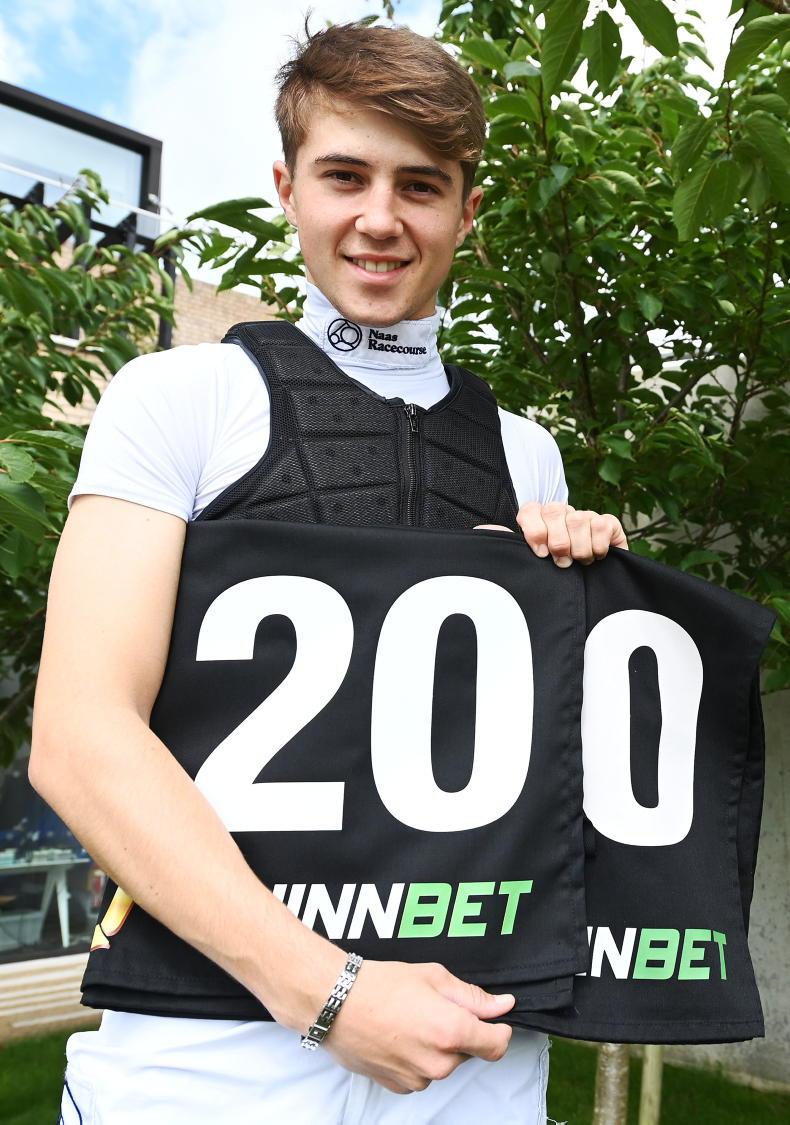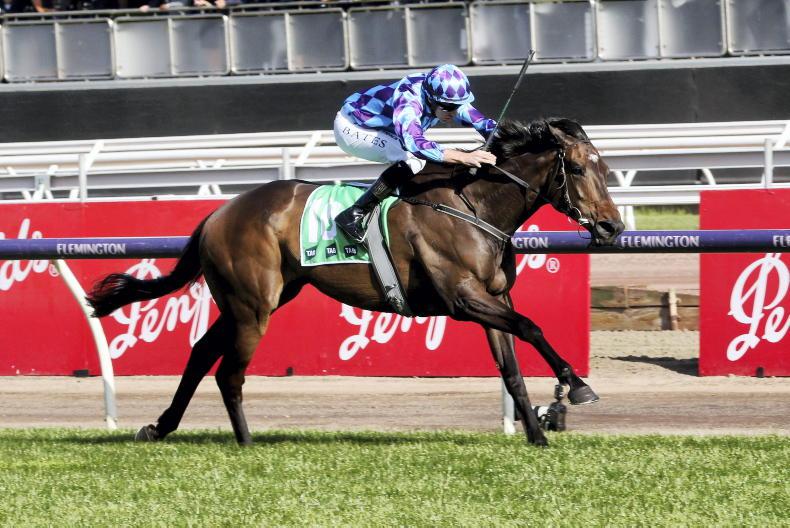The best moments
THE nominal favourite for the Cox Plate once first declarations were made, the Danny Shum-trained Romantic Warrior’s reputation had preceded him.
Stepping out of quarantine and into the Group 1 Turnbull Stakes, the Acclamation gelding, bred in Ireland by the Egan family’s Corduff Stud and Tim Rooney, was a perplexing fourth, which left locals wondering.
Jockey James MacDonald remained buoyant and come Cox Plate day the stars had aligned. Fit, healthy and better for the run at Flemington, Romantic Warrior swept into the race four-deep on the bend.
Hard ridden, the six-year-old dug deep to claim a first win in the race for Hong Kong as he narrowly defeated Mr Brightside.
With that country a reliable source of sales for Australian yearling vendors and trainers of tried horses over the years, the win had a sense of synchronicity to it, hopefully paving the way for others to follow Danny Shum’s Hong Kong template.
Professional horse
“He’s a very good horse in the way he is, he’s a professional horse and we can see that in the stable and in his races. I’m very happy that he could win the Cox Plate, I don’t know how to explain it, I’m just very happy. I know it’s all real, but I can’t describe the feeling,” said Shum.
If confirmation of the trip’s viability and success were needed, Romantic Warrior was back on song six weeks later, to claim a second consecutive Group 1 Hong Kong Cup at Sha Tin.
“He’s the toughest horse I’ve ever ridden. He has a heart as big as a lion,” said jockey James McDonald. “He has travelled from Australia to here. This is his best win by a mile.”
AUSTRALIA’s pre-eminent jockey of the past 30 years, Damien Oliver got to write his own retirement script at Ascot on December 17th, the final day of their West Australian Summer Carnival.
The 51-year-old ‘Olly’, born in Perth, signed of with wins in the final three rides of his career, completing his treble in the last of the day, the A$1.5m Damien Oliver Gold Rush on the Nick Ryan-trained Munhamek.
“It was an amazing finish to the day. To ride the last three and win your last race in circumstances like that. It was just amazing. Unbelievable,” said Oliver. “You couldn’t ask for a better day full stop, could you? Dreams come true and I couldn’t ask for more.”
In scenes reminiscent of his salute to his recently departed brother Jason, on crossing the line at Flemington aboard Media Puzzle, Oliver stood high in the irons one last time.
The victory a final reminder of Oliver’s deft skill and timing, having weaved through the field to present the $7 chance late to snatch a half-length victory aboard the British-bred son of Dark Angel, who raced in the UK as Hall Of Champ when trained by Ivan Furtado.
Death or glory
“I couldn’t think of a better way to finish,” said Oliver. “It was death or glory at the top of the straight. I have confidence in this horse. He can take the gaps when they come.
“Nick Ryan has done a great job with him, and I just had to point him in the right direction. When the gaps came, he worked his way through them. It was a great win and an unbelievable feeling.
“It’s a bit of a relief. It has been overwhelming, and the crowd here at Ascot have given me a wonderful reception. I think it is the biggest crowd I have seen here, and I won’t forget the roar and applause for those last three winners.”
NO mention of the year’s highlights would be complete without acknowledging the performances of the I Am Invincible mare Imperatriz.
Trained by Mark Walker for Te Akau Racing, the five-year-old has swept all before her to stake a serious claim for Horse of the Year honours.
In 2023 she won eight of her nine starts, including six Group 1s, and is undefeated since her Group 1 William Reid Stakes win in March.
Her only contentious omission was bypassing a trip to Sydney for the A$20m Everest, for which she would have started favourite, with the Te Akau team always keen to emphasise that their horses’ well-being was their primary concern.
Bred by Raffles Farm, Imperatriz was a A$360,000 Magic Millions yearling, who has now earned in excess of A$5.36m from 23 starts that comprise 17 wins.
Disappointment of the year
THE biggest cause for concern over the past 12 months was a spate of race falls on Melbourne’s biggest stages where, although serious injuries occurred, the outcomes could have been far worse.
During the autumn carnival last March, race falls occurred across three consecutive Saturdays, an unheard of occurrence.
Highlighting the gravity of the situation was that the state’s top jockeys were involved, Jamie Kah suffered a severe concussion, Craig Williams suffered broken bones, Ethan Brown sustained internal injuries, and Teo Nugent fractured his C1 vertebra.
The falls prompted meetings with officials leading to the Victorian Jockeys Association to write to all jockeys reminding them of the importance of riding “in a safe, fair and responsible manner.”
Fatigue was also raised as a factor, as racing is now a seven-day a week proposition, with most jockeys also required to ride work in the mornings, as well as fill in their raceday commitments.
Challenges for next year
WHILE Australian racing looks to be in the best possible shape, recent downturns in wagering, a key source of prize money funding, suggest adjustments are on the horizon, as wagering companies expand into ever-broader sports betting, whilst race clubs seek to attract a new generation of racegoers beyond those that only attend the major carnivals.
The Everest is a prime study, as it’s designed for the under-35s, with a plethora of ‘accessible experiences’ both in terms of affordability and flavour, such as free concerts, DJs, food and drinks.
“We’ve got to do a lot of research on what they like, on what they will engage in to make sure that thoroughbred racing has a future in the next 10 years,” said Peter V’landys, chief executive of Racing New South Wales in 2018.
“We want to keep innovating, if you don’t innovate you perish.”
At present they are succeeding with record modern day crowds and wagering turnovers boosted by the Hong Kong Jockey Club’s World Pool initiative.
RUNNING parallel to the ‘wagering sustainability’ that underpins the viability of racing, the industry must also ensure its ‘social licence’ remains relevant to society’s rapidly evolving expectations around welfare and integrity. These themes were touched on in the Asian Racing Conference in Melbourne in February with the use of the whip, racecourse injuries and fatalities, and the fate of retired racehorses, touchstones of debate. Front and centre of this debate has been Australia’s most international race, the Melbourne Cup, which reached a low point when seven horses died in an eight-year period, between 2013 and 2020.
Since then, more exacting protocols have been implemented, which although arduous and since adjusted, have played a role in the reduction of serious injuries. This was highlighted in November by Willie Mullins: “Maybe you overdid it a bit earlier on, but things find their level. When we see what’s going on around the rest of the world, someone has to start somewhere and get racing right for the people that are in the game.”
IF a barometer existed to highlight the health of the racing industry, in Australia, it would be the ‘millionaire needle’.
As highlighted in a recent publication from Aushorse, there is a million dollar race in Australia every 3.8 days.
To put that into context, there will be 95 races worth a million dollars or greater in 2024. Further to this equation, across the whole of Australia the average race value is A$50,800.
Not surprisingly, the prices from this year’s yearling sales have remained strong, with averages of $391,567 at Inglis Australian Easter yearling sale, $292,926 at the Magic Millions Gold Coast Yearling Sale, NZ$151,980 at New Zealand Bloodstock Karaka Book 1, and A$135,671 at Inglis Melbourne Premier, accounting for the sale of 2,026 yearlings, 48 of which sold for $1m or greater.
The top-priced of which was the $2.7m paid by Tom Magnier at the Magic Millions on the Gold Coast for the I Am Invincible colt, the first foal of the Fastnet Rock mare Anaheed.


 This is a subscriber-only article
This is a subscriber-only article
 It looks like you're browsing in private mode
It looks like you're browsing in private mode











SHARING OPTIONS: